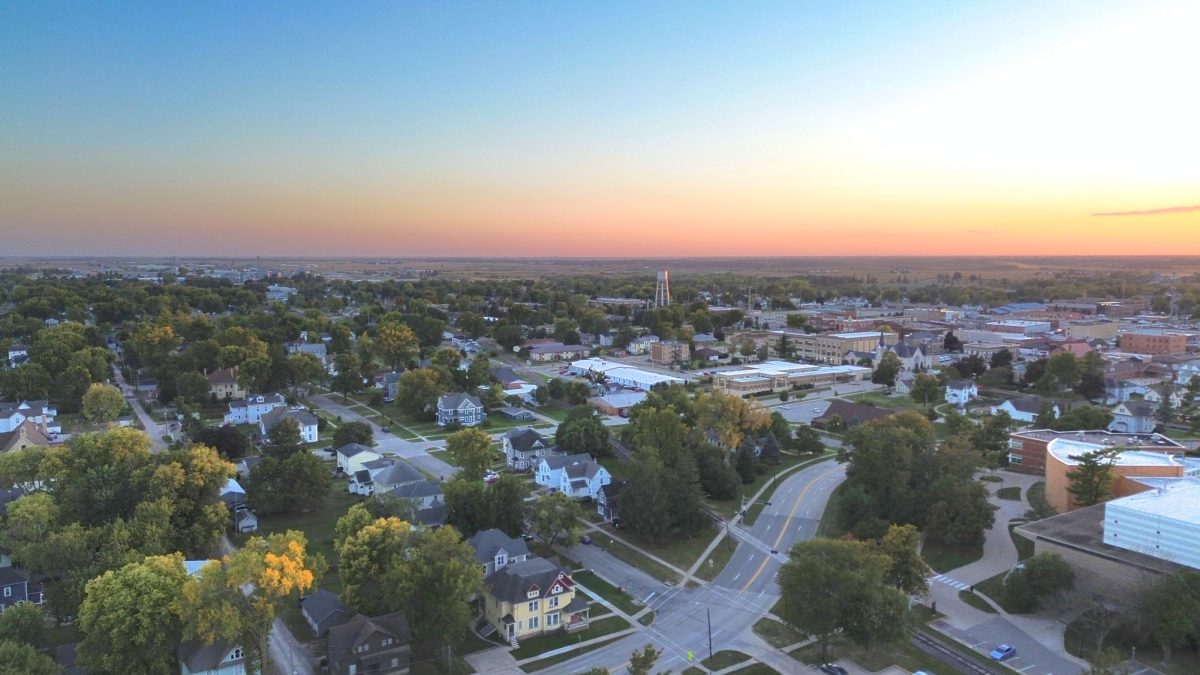
By Steve Yang
yangstev17@grinnell.edu
The Office of Analytic Support and Institutional Research and the RAND Corporation developed the “Mental Health and Support Networks Survey,” that will be sent to Grinnell students on Monday, Nov. 7. The questions will primarily focus on depression, anxiety and substance abuse, “the three most common issues related to mental health on campus, according to SHACS aggregate reporting,” according to a campus-wide email on Wednesday, Nov. 2. The email also announced the creation of the Student Mental Health Task Force, comprised of representatives from numerous parts of campus. The task force will follow a tripartite model to address mental health on campus and report to President Kington.
The mental health survey’s results are intended to serve as a starting point for more intensive research into campus work and will inform the changes implemented by the Task Force, which consists of the Chaplain’s office, the CRSSJ, Director of Wellness Jen Jacobsen and student advocates for mental health, including Toby Baratta ’17, SGA Diversity & Outreach Coordinator and Maddie O’Meara ’18.
“As someone who really cares about the data and finds the fact that our mental health on campus is collectively worse than the norm really troubling, I’m excited to see how this pilot survey turns out and hope to see other [Associated Colleges of the Midwest (ACM)] colleges participating,” Baratta wrote in an email to The S&B.
O’Meara added that the survey serves as a first step towards concrete, practical action at Grinnell. She anticipates the College will feel obliged to fulfill this role since it is serves as the vanguard for this program within ACM schools.
“[This] particular survey is important because it represents an institutional commitment to bettering mental health resources on campus; a commitment that the entire ACM will be helping hold Grinnell accountable for,” O’Meara wrote in an email to The S&B. “More so than in other years, this survey was designed intentionally with a goal of reaching the students who are most in need of better or different resources.”
Kaitlin Wilcox, Assistant Director of Analytic Support, encourages students to take the survey because it informs efforts that “provide a more robust and comprehensive mental health support network on campus tailored specifically to what students indicate is helpful and necessary for support of mental wellness,” wrote in an email to The S&B. She mentioned that the Office has anticipated how students might respond to the survey, and are aware of specific concerns at the community level.
“Given recent discussions on mental health we would certainly expect for student responses to be fairly critical of our mental health climate and resources,” Wilcox wrote. “We also realize that other small colleges located in rural areas have similar concerns.”
The Office of Analytic Support hopes to release its findings in the spring. The data will both improve campus mental health practices and also motivate ongoing collaboration with the ACM. Framed as a “long-term commitment to research on mental wellness in campus settings,” Wilcox is spearheading a partnership with senior researchers at the RAND Corporation to conduct research and work on mental health issues at the college level.
“It was worked on by quantitative scientists and psychologists to try to ask the right questions regarding campus depression and anxiety on campus. This hopefully will allow for more conclusive results and changes,” O’Meara and Baratta wrote.
Wilcox noted that the immediate benefits to students and the rest of the community will come in the form of information about types and prevalence of mental health issues on campus, and how current services are utilized. and the utilization of services.
“This information is critical to getting our staffing right-sized, understanding the complexity and types of services we need, and understanding what other information we need to best serve our students,” she wrote.
Baratta and O’Meara were primarily tasked with working on outreach, language and survey methods, dedicating themselves to ensuring that questions of inclusivity and diversity were framed properly.
“So, we are both queer, mentally ill and disabled folk on campus, so those are probably the things that came up first — making sure that the survey was accessible for everyone to actually take, ensuring that the questions were asked in a way that minimized discomfort and encouraged participants to continue and working to ensure the questions were respectful,” they wrote.
Other facets of the survey design specified that a portion of the survey material was originally used as part of RAND’s evaluation of the California Statewide Mental Health Prevention and Early Intervention Initiatives project, while other portions borrow from current literature examining depression and anxiety screening, mental health literacy, alcohol and drug use and social networks.
“Personally I’m interested in student experience. The thing that is really important here is having the comparative data across other similar schools, which is why Maddie and I really want this pilot to succeed,” Baratta wrote. “We know we have a problem with Grinnell, but often it is excused as ‘we are in the Midwest’ as the solution, and I think the ACM data could either provide evidence to that fact, or the opposite — that this is a bigger Grinnell problem and cannot be explained that easily.”
According to the memo, Wilcox and the Office of Analytic Support want to utilize the information to “measure baseline campus climate related to mental health so that in future iterations of this work we truly know if the climate is improving.” Members of the Task Force hope that future allocation of campus resources will be better informed, especially in regards to additional funding at Grinnell and elsewhere.
“I expect the survey to show that we are seriously lacking resources, particularly for students of color, trans and queer students and survivors.” O’Meara wrote. “I think that one of the more pressing portions of analysis will be regarding the need for a psychiatrist, for increased counseling hours and for better resources for the aforementioned marginalized groups.”
Although O’Meara and Baratta acknowledged that the survey will likely not be perfect and maintain some blind spots in intersections of identity, they are hopeful that students will take the survey and improve the College’s ability to tackle mental health.
“We know the survey isn’t the dream solution to all of the mental health problems on campus,” they wrote. “In fact, we expect that the change won’t be seen during our time at Grinnell. However, … this kind of data collection over time could give Grinnell a better picture of the issues we have, and give us that kind of continued institutional memory to make structural changes.”





























































